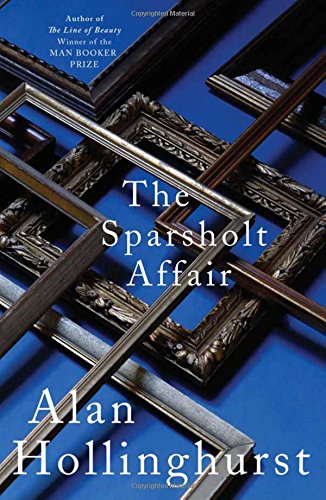Television has paid its dues to the 50th anniversary of the Sexual Offences Act - rather feebly, with some rotten acting, in Man in an Orange Shirt; brilliantly, with mostly superb performances, in the monologue sequence Queers, surely due a second series. Now it's the turn of one of our greatest novelists - no need to add the qualifying "on gay subjects" - to make even richer work than Queers of stimulating our imaginations by leaving us to fill in the gaps.
"The Sparsholt Affair" is the big, offstage crisis at the heart of Alan Hollinghurst's dance to the music of time, his pictures at an exhibition covering 70 years of mostly cultured life, both gay and straight, where the spaces on the wall make the reader do a lot of the re-creative work. The artists of these rich canvases, in other words the narrators or point-of-viewers, range from an ambivalent observer of glorious, muscled teenager David Sparsholt at Oxford in the early 1940s through to Sparsholt's gay artist son Johnny and his daughter Lucy who carry us through to the near-present. Sparsholt Senior is seen, observed but hardly present - he disappears from authorial sight for over 200 pages, only to make a fleeting but significant appearance in a meeting with Johnny.
 Lucy as a perceptive but puzzled eight-year-old onlooker in the book's fourth part, lacking all the puzzle-pieces, isn't the only homage to the cruel and tender ambiguity of Henry James. The style somehow evokes him even when Hollinghurst is much more succinct than the genius who dictated his late, great novels: of the regulars who gather at the London home of a once-famous writer, for instance, "they gleamed with the privilege of proximity, and the terror of saying the wrong thing".
Lucy as a perceptive but puzzled eight-year-old onlooker in the book's fourth part, lacking all the puzzle-pieces, isn't the only homage to the cruel and tender ambiguity of Henry James. The style somehow evokes him even when Hollinghurst is much more succinct than the genius who dictated his late, great novels: of the regulars who gather at the London home of a once-famous writer, for instance, "they gleamed with the privilege of proximity, and the terror of saying the wrong thing".
Hollinghurst also has an epigrammatic brilliance of his own. 14-year-old Johnny's sexy French penpal Bastien, for instance, smiles "'outrageously" at a girl, "the seducer's smile of self-love"; decades later, the TV celebrity Bella who's commissioned a family portrait from Johnny is "heightened and hardened by being so much seen". The fifth and final sequence has a special virtuosity, no doubt by nature of its being the shortest and the one most attuned to the present day. Within two paragraphs, a dot com empire, the iPhone, the underpunctuated style of texting and the new application of the word "husband" are neatly introduced through Bella's perspective; and though the family portrait sequence wickedly observes the emptiness of the less cultured among the well-off, Hollinghurst later gives glimpses into the possibility of something more behind Bella's brittleness.
Structuring is impeccable, with the central sequence being the longest and most diverse, and set-pieces are typically evocative: a tantalising war-time night watch on an Oxford tower, a Falmouth sailing expedition, a trip to Wales to stay in an Ernő Goldfinger-like house. Symmetries and echoes are nicely placed, too, above all in two very different depictions of gay club scenes observed over time by Johnny. The sex is less frequently featured and less explicit than many admirers might have come to expect, but the excitement of the game and the romance of pursuit remain as vividly drawn as ever. Above all, it's the elegant blend of sympathy and detachment which marks this out as vintage Hollinghurst. Oddly, the essence of his previous novel, The Stranger's Child, has evaporated in my memory; but this, I know, is sure to resonate for much, much longer.
- The Sparsholt Affair by Alan Hollinghurst (Picador, £20)
- Read more book reviews on theartsdesk
- David Nice's blog on BBC Four's Queers















Add comment